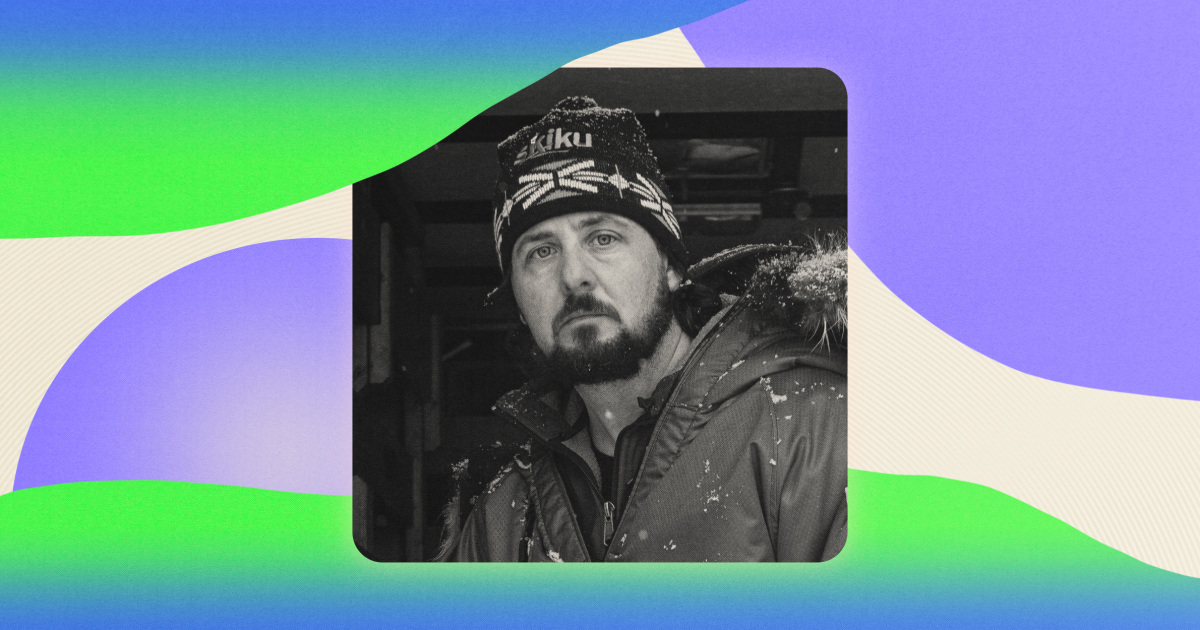
[June is Pride Month, and this year we’re celebrating by honoring 30 LGBTQ firsts. To see the full list, visit nbcnews.com/pride30.]
Quince Mountain, the Iditarod’s first openly transgender dog musher, is using his popularity on social media to combat anti-trans sports bills in his home state, Wisconsin, as well as a slew of similar bills introduced in dozens of states. The two Republican-backed measures being debated in the Wisconsin Legislature seek to ban trans students from participating on sports teams that match their gender identities.
“I don’t think I’ve been angrier about an issue than I am about this sports thing,” said Mountain, 41.
Mountain became the first out transgender musher to compete in the 1,000-mile Iditarod Trail Sled Dog Race through Alaska in March 2020 (he was forced to stop about 250 miles shy of the finish line because of the Covid-19 pandemic). Now, Mountain, who has garnered a sizable following on social media, is racing to educate the public and state lawmakers about the potential dangers of anti-trans sports bills.
“It sends a message to trans kids that they’re a problem to be dealt with, and that message, I think, is lethal,” he said. “This is so punitive. It’s using kids as a political cudgel.”
Mountain put his anger into action last month, testifying against the proposed sports bills alongside other advocates at a hearing before Wisconsin legislators. He said the bills would affect all students, not just the small number of transgender athletes. “If I’m not on your team, you lose, too, not just me,” he testified.
He also teamed up with actor and photographer Rachel Crowl to produce a short video titled “Let Kids Play” to spread a message that for youths, playing sports is about learning teamwork and making friends, not coming in first place. The video features a number of transgender and cisgender people — including local elected officials and artists — who talk about how sports shaped them into who they are today. Mountain called on the Ugly Dogs, a group of mushing enthusiasts who follow him and his wife, fellow musher Blair Braverman, on social media, to raise nearly $4,000 to produce the video.
Mountain came out publicly as trans in 2019 on the Discovery Channel’s “Naked and Afraid” survival reality TV show, where contestants compete in the nude. He said he used to describe himself as a “reluctant trans person” because of his hesitation to be public about his identity.
“Now, I’m not a reluctant trans person,” he said. “Now, like, f— you, I want to tell everybody.”
Choking back tears, he said he gets notes from parents at least twice a week thanking him for showing their trans children that “you can have a life beyond” being trans and that it “doesn’t have to be all negative.”
Anti-trans sports bills are personal for Mountain. While he didn’t transition until he was in his 20s, he was “often read as male” as a teenager, he said. Despite being a good softball player, he was cut from the girl’s softball team at the high school he attended in suburban Chicago, he said. The coach, he said, told him she cut him because he would be bad for “team cohesion,” suggesting, he suspects, that she felt his presence on the team would play into the stereotype that softball players are gay.
Getting cut was “devastating,” he said. “I was indignant, but I also felt like I couldn’t do anything, and I just gave up. I mean, it made me this, like, cynical, angry person.”
Mountain pursued adventure sports as an adult, including horseback riding and, later, dog mushing — individual sports in which he didn’t have to rely on anyone but himself. The discrimination he dealt with in childhood, he said, gave him a useful skill: the ability to endure.
“It’s easy for me to be focused on only the voice in my own head, which, I don’t know, I think it’s something a lot of people have to learn,” he said.
Mountain chose not to compete in this year’s Iditarod. One of the reasons, he said, was that he felt the Covid-19 pandemic put the small villages that dot the Iditarod’s trail — many of them home to Indigenous people — at risk. But he said he hopes to compete in the 400-mile John Beargrease Sled Dog Marathon in northern Minnesota and the 325-mile Canadian Challenge, Canada’s premier dog sled race.
Mountain said Pride is about overcoming the “crucible” of being LGBTQ in a society that doesn’t always accept you.
“Once you work through that, that’s what Pride is,” he said. “I hope everybody can find that pride, whether they’re trans, whether that’s just being who you are, sharing who you are, and not being threatened by other people being who they are, even when that’s different.”

